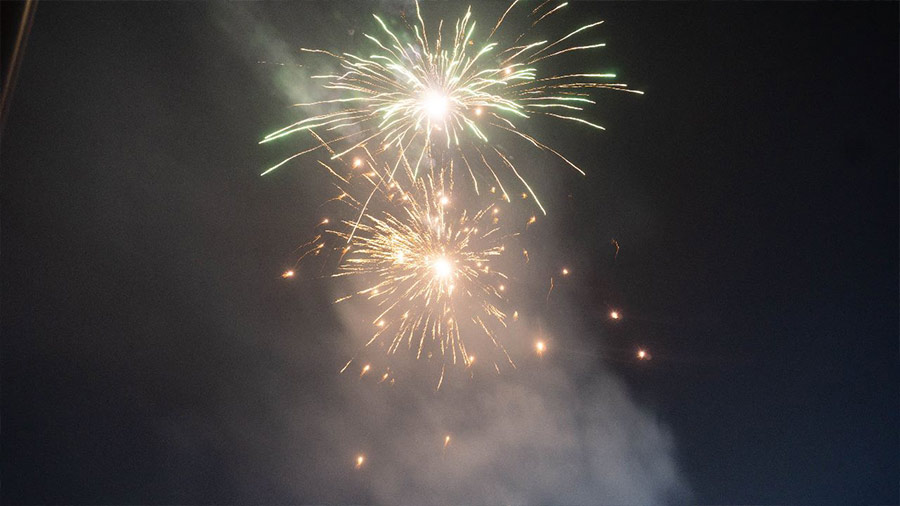Even as Kolkata battled with “poor” air quality for several days during the run-up to the year-end, allowing the bursting of green crackers on New Year's Eve was a clear violation of Supreme Court order as the apex court had directed that such permission could only be given to areas where the air quality index (AQI) stood better than “poor”, experts have said.
The West Bengal Pollution Control Board and Kolkata Police, in their respective communication, only stated the time limit for bursting green crackers which was between 11.55pm to 12.30am on New Year’s Eve, but refrained from mentioning the “poor” air quality rider.
The Supreme Court, in its order dated December 1, 2020, subsequently referred by another order (by it) dated July 23, 2021, directed that “… green crackers can be used between 11:55pm and 12:30am during Christmas and New Year only at places where the air quality is “moderate” or below …”.
The principal bench of the National Green Tribunal also said in one of its orders that “… during Christmas and the New Year, green crackers can be used between 11.55pm and 12.30am only at places where the AQI is moderate or below as directed by the Supreme Court”.
“Bursting of green crackers is a violation of Supreme Court order if Kolkata had poor air quality during the period,” stated advocate Gopal Sankaranarayanan, who has been pursuing the cracker pollution related issues in Supreme Court. Lawyer Ritwick Datta, who pleads green cases in both the apex court and the principal bench of NGT, agreed.
Another legal expert reminded that the Delhi government had completely banned the production, sale and use of all types of firecrackers, including green crackers from Diwali till New Year in view of the capital’s poor air quality which was subsequently ratified by the apex court when people challenged the decision of banning even green fireworks. “If Delhi can, why not Kolkata,” asked an activist.
Poor air on New Year Eve
According to the Central Pollution Control Board (CPCB) figures accessed by The Plurals, Kolkata’s air quality turned “poor” with the air quality index (AQI) reading between 201 and 300 and on December 28 AQI was pegged at 215. It continued to worsen till December 31. On January 1, 2023, the AQI read 261.
The PCB recently said that Kolkata's air quality was “poor” even in the last three winter seasons. "The PCB should have considered the green cracker permission based on the pollution data of previous years and also on the fact that the city's air quality remains at its poorest during the December-January period," said an air emission specialist. Environment activists have complained about large-scale violations.
“Forget about the blanket ban on green crackers in accordance with judicial orders. Even the norm of a 35-minute window only for green crackers was blatantly flouted in Kolkata and elsewhere in the state and as conventional crackers were used till late night. Moreover, there were several DJ and microphone-related complaints from various parts of the state,” said Naba Dutta, secretary of environmental civil society platform Sabuj Mancha.
Official data from the Central Pollution Control Board supports the allegation. The city’s average noise level between midnight on December 31 and 1am January 1 was around 62 decibels, far above the national permissible limits specified for silence zones, residential areas and even the commercial areas during that time.
Blame game begins
Both the PCB and the police have started passing on the buck. “According to the act, the police are supposed to regulate noise pollution. We had passed on all relevant information to them,” said a senior PCB official.
“PCB is supposed to guide us on the technical issues but no such communication came from them regarding the New Year's Eve. How are we supposed to know when the air quality turned poor,” asked a senior police officer.
“PCB should have published a notification with the poor air rider mentioned in the Supreme Court order. Police must be technically supported by the PCB,” observed Biswajit Mukherjee, retired chief law officer of the state board and former high court- appointed special officer on noise pollution.
